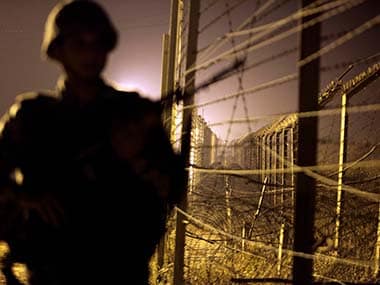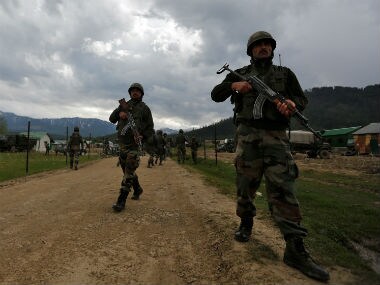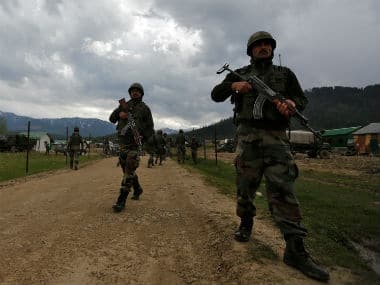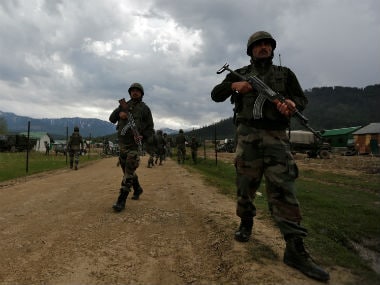Good for Lt Colonel (Retd.) Karamveer Singh. Filing a petition in the Supreme Court to quash the FIR against his son Major Aditya for murder and attempted murder is the right precedent to establish.
For too long has the concept of unquestioning obedience been used to keep families of service officers and men in line and out of the picture. This is a strong message. Major Aditya and his team from the 10 Garhwal Rifles were attacked by a stone pelting mob of 200 young men near Shopian in Jammu and Kashmir and their four-vehicle convoy was isolated.
Only when their lives were in danger and their defence on the verge of being overrun did they open fire and repel the attackers. Which caused casualties: Two stone throwers were killed. However, the rest were let off. No charges were filed against them.
The legal stand that Major Aditya was not even in the area, but slightly away is a moot factor because it is military tradition for the senior-most officer to take responsibility. While his father may well make a case of it in civilian court, it is unlikely that the major would walk out without his men. That simply isn't done.
So while the lawyers might push the issue, what is more important is the need to quash the FIR against all of the army men on grounds of self-defence and protection of one’s life. The Supreme Court earlier ruled in favour of this. Even if the petition does not predicate itself to this fact, it must be a codicil to the main case.
The right given under (IPC) sections 96 to 98 and 100 to 106 is controlled by Section 99: According to the right of private defence of the body and of property, every person has a right (subject to the restrictions contained in Section 99) to defend his own body or that of any other person or against any offence affecting the human body. The military is no exception to this… its personnel are persons so described.
A few examples where you can exercise right to self-defence:
- Protecting your property
- Reasonable apprehension of disfiguring (with stones)
- During a kidnapping attempt
- During a rape attempt
There must be reasonable apprehension: A screaming mob of 200 armed with football-sized boulders is not friendly by any stretch. That demand is well beyond satisfied. A person can kill under the right of self-defence only on reasonable apprehensions of threat to his own life from the offender, the Supreme Court has ruled. This is the key sentence. If it is reasonable.
And what could be more reasonable than holding fire till a Junior Commissioned Officer (JCO) was about to be lynched? The first priority of his comrades was to save his life. The men with the stones meant him harm. So we now have the Supreme Court, the Centre and the state government, which the BJP is part of. In front of this trinity, stand soldiers who, as per the video evidence, did their duty.
Shopian has the potential to be a watershed in the civil-military equation. Much will depend on the outcome of this petition. To dismiss the petition without relief would be tantamount to telling the army that its men are cannon fodder and their lives unimportant. That, even in the face of grave danger on their own land, against an adversary from within — which the government does not recognise as an enemy — they must not open fire. There will be far reaching consequences and the government must show both the legal and political will to defend its men in uniform.
The submission to the apex court reads: “The present writ petition (along with application for permission to file) is filed by a decorated army officer, on behalf of his son, for protecting the morale of the soldiers of Indian Army, who are facing all odds in performance of their bonafide duties and laying their lives in the line of duty, to uphold the dignity of the Indian flag. This is now a test for the nation because the colonel seeks redress under Article 32 of the Constitution of India for protection of valuable fundamental rights of his son and himself."
It also underscores the fact that these soldiers were not there of their own volition, but on the orders of the government who gave them guns and bullets to perform a certain task. This rider will be the most important part of the petition. They protected themselves, their equipment and weapons. That's what soldiers do.
Published Date: Feb 08, 2018 17:51 PM | Updated Date: Feb 08, 2018 19:42 PM





















